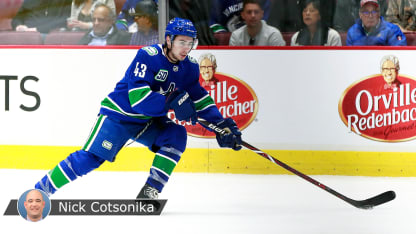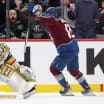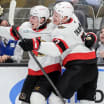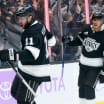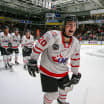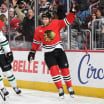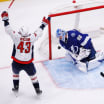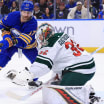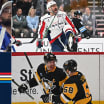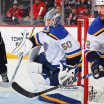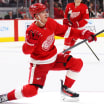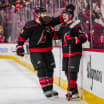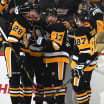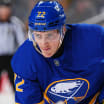"Sometimes," he said, "I feel that he must have been a forward growing up or something."
A comment like that is not always meant as a compliment for a defenseman, especially a rookie defenseman. But in this case, it was. It was a skilled young player recognizing another.
Pettersson, who turns 21 on Nov. 12, won the Calder Trophy as the NHL rookie of the year last season when he had 66 points (28 goals, 38 assists) in 71 games, leading rookies in scoring by a 21-point margin.
Hughes, who turned 20 on Oct. 14, is a candidate for the Calder this season with 10 points (one goal, nine assists) in 12 games, tied for the rookie scoring lead with Buffalo Sabres forward Victor Olofsson (six goals, four assists), Toronto Maple Leafs forward Ilya Mikheyev (four goals, six assists) and Colorado Avalanche defenseman Cale Makar (one goal, nine assists).
His 18-year-old brother, New Jersey Devils center Jack Hughes, the No. 1 pick of the 2019 NHL Draft, has five points (two goals, three assists) in 10 games.
Since the Canucks put Quinn Hughes on the No. 1 power play full time on Oct. 20, they have scored eight power-play goals, most in the NHL. Hughes has assisted on seven of them, leading the League in power-play points in that span. Vancouver is 4-0-1 in this stretch and 8-3-1 overall, second to the Edmonton Oilers in the Pacific Division.
"He's great," Pettersson said. "He just creates so much with his speed and the way he moves the puck. It's really great to have and fun to see. It's fun to play with him."
